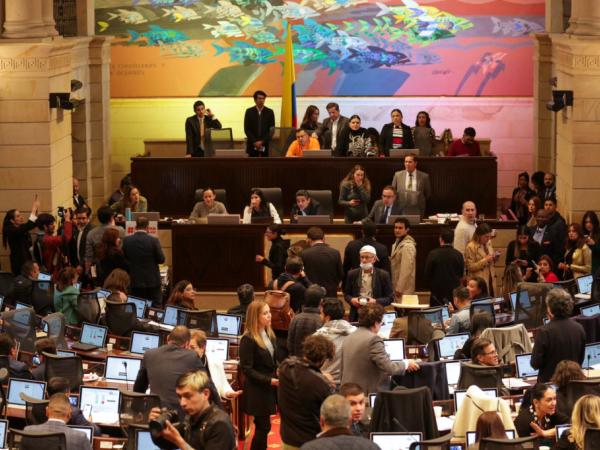The government of President Gustavo Petro since he came to power in August 2022 has repeatedly tried to carry out reforms to different sectors such as health, education, work (labor), pensions and, of course, taxes (tax) called ‘financing law’ (which in recent days has been sank in Congress); while projects such as the pension were approved.
On several occasions, these projects finally They did not see the public light, because were not approved by the House of Representatives or the Senate.
The most recent project was called financing law, that sank in the Congress of the Republic; This could already be seen coming, since the parties had repeatedly expressed their disagreement with the project presented by the Ministry of Finance.
These were some of the reasons expressed by the parties for voting negatively on the financing law, which sought to cover the 12 billion deficit in the budget for 2025.
(Also read: How did the collapse of the financing law affect the Petro government?)
“The Liberal Party does not vote taxes that tax the Colombian family basket, the sale of a car or a family inheritance“, they pointed out from the party whose president is César Gaviria.
“The government’s tax reform, disguised as financial reform, will not have a vote from our liberal congressmen because they consider it highly harmful to the fragile economy of Colombians. The pockets of Colombians cannot support more taxes“, they stated.
For their part, the conservatives They had also disagreed. The Bench of the Economic Commissions of the Senate and Chamber of the Conservative Party previously indicated that their vote would be negative “to the financing bill presented by the national government, considering it inconvenient to impose new taxes on Colombians in the current fiscal scenario of the country”.
“Likewise, this law contemplates an increase in the tax on casual gains by 20 percent for all Colombians who from now on receive an inheritance, sell their house or their car. It also eliminates the simplified regime, affecting small and medium-sized companies that were formalized under this stimulus and that today represent the large business fabric.“, they noted in the statement.
(See more: Appointment of Daniel Mendoza as ambassador to Thailand fell)
Furthermore, at the time they stated that “It is not responsible for the country’s economy to put compliance with the fiscal rule at risk, increasing the debt when there is no income to pay it.”.
It must be said that, after several attempts in Congress, debates and sessions were postponed on several occasions, due – sometimes – to a lack of quorum. Nevertheless, The project collapsed.
VALENTINA DELGADILLO ABELLO
Journalist Portfolio














